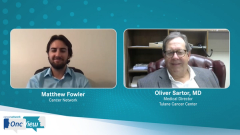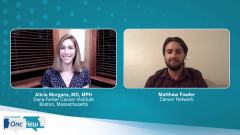
Sequencing Strategies for Metastatic Castration-Resistant Prostate Cancer Therapy
An expert examines sequencing strategies for the treatment of metastatic prostate cancer.
Matthew Fowler: Given all of the options for men with metastatic castration-resistant prostate cancer, what’s your preferred sequencing strategy?
Alicia Morgans, MD, MPH: That changes for every individual man. As we talked about earlier, it’s going to depend on the cancer, the patient himself, how fit or frail he is, what his comorbid illnesses might be, and the specific characteristics of whether that patient can and wants to access different treatments. Even if the patients start off the same way in metastatic hormone-sensitive disease, every patient that I meet ends up taking their own path and the cancer may progress or respond differently for each individual man. At each decision time point, it’s incumbent on us to have those conversations with our patients and find the right match for each of them. And if we don’t pick the right match, we need to make a change and choose the treatment that’s going to be the right one for them moving forward.
There isn’t a preferred pathway for me. In general, many patients end up getting ADT [androgen deprivation therapy] plus an AR [androgen receptor]-targeted agent early on. If they don’t, they get ADT plus docetaxel chemotherapy early on. In the next line, they’re often switching from either chemotherapy to an AR-targeted agent or from an AR-targeted agent to chemotherapy. But that’s a very vast generalization. It’s absolutely different for every individual patient who comes in.
This transcript has been edited for clarity.
Newsletter
Stay up to date on recent advances in the multidisciplinary approach to cancer.






































